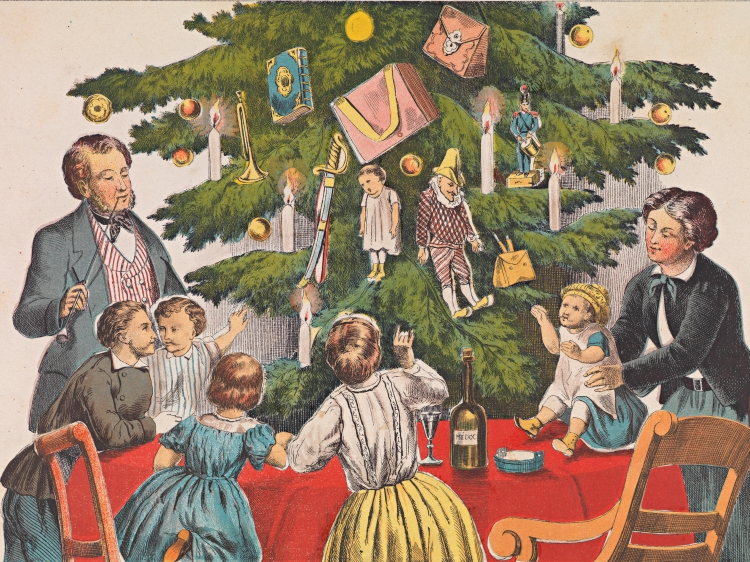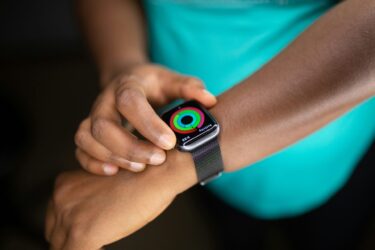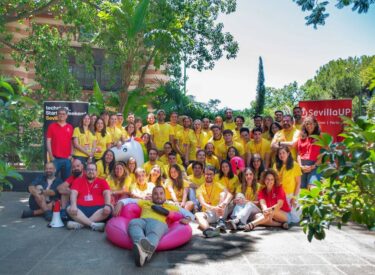This is a guest article by Linas Ceikus. He is the CEO and Co-Founder of Tinggly – an online gifting service that curates 350+ memorable experiences across 100+ countries. Linus is a serial entrepreneur, with 15 years of experience in business, e-Commerce and marketing. Here he explores how consumer buying patterns are evolving, in a shift from the traditional physical object to the gifting of digital entities and experiences, as this season’s holiday shopping spend hits record levels.
The tangible Christmas gift, placed under the tree is quickly becoming a relic of the past. While holiday shoppers are on average spending more, as they endeavor to spread the festive cheer – technology has intervened and is shaping our gifting behaviors and the sharing of glad tidings.
Today, a shift in gifting preferences and the increased value held to experiences over possessions, largely driven by Millennials, means a replacement of the traditional and reliable go-tos like socks and ties in place of sunset hot-air balloon tours, luxury spa trips,and journeys across the globe.
Retail spending levels over November and December are predicted to rise annually by 3.7% to $630.7 billion. Forty-six percent of all holiday shopping is expected to happen online, with $80 billion will be spent this holiday season through e-Commerce platforms. But it is not only the portals to spending that have adapted. The entire Christmas shopping and receiving experience has been shaped by digital connectivity and a taste for new luxuries, with a strong dollar bringing a new form of “joy to the world.”
Decline In The Traditional Gift
A push in consumerism, gift-giving and online shopping is nothing ground-breaking. However, the emerging portals and end-to-end digital practices are a new trend that looks set to redefine the Christmas scene, perpetuated by the enormous growth in tech offerings.
Apple lets its iOS users gift paid apps to one another, with just a few swipes and taps. The digital Goliath unleashed this option in the Christmas countdown of 2012. Today, this is further complemented with the ability to gift music, eBooks, films and series through the App store, with the gift icon that makes this this all so easy.
As mobile usage takes on a new role in the e-Commerce industry, “social gifting” has been propelled as a valued form of online shopping. Users through social media sites like Facebook can buy gift-cards from participating retailers, with birthday prompts on their mobile devices. As user demographic and behavioral data is combined with advanced technologies, we can expect a refining of these quick purchasing options, typically attributed to the last-minute shopper.
Music-streaming sites such as Pandora, Rdio, and Spotify all offer gift-card options as most services today do. Amazon allows users to add a personal touch, through uploading your own photo, superimpose your head on a dancing elf but its gifts are generally limited to the physical object – or the ever popular eGift card.
Whilst a popularity for gift cards and e-gift cards still prevails – the lack of a personal touch makes these offerings less attractive. In the 2015 run-up to Christmas the biggest trend noted has in fact been personalization. What does a collaboration in the rise of online shopping, and a desire for a personal story, a nostalgic approach and customized gift then look like?
The Luxury Of The Experiential
“There is an exhaustion with buying stuff,” reported chief economist at the Organization for Economic Co-Operation and Development, Catherline Mann. Shoppers are increasingly rejecting the traditional, ordinary gifts in favor of presents that focus on “doing” as opposed to “having,” according to researchers at the University of Chicago. Mann noted that consumers today are spending more on entertainment, tourism and dining out – over material goods such as electronics, clothing and household items.
This is reportedly more attractive than the physical object, the traditional socks and sweaters, DVD or – with 80% of Americans claiming a preference for this style of gift, Travelzoo revealed in a recent survey. These experiences also eclipse the digital gift, with 81% reporting to prefer concert tickets over an iTunes gift card.
In 2014 UK-based newspaper The Economist reported a shift to experiential gifts – for “the sophisticated consumer.” They noted how initial consumption trends, frequently set by the rich trickle to the average shopper, defining new notions of luxury.
The idea of giving a loved one a memory for life, in place of a physical object with a limited longevity and luxury appeal has arisen as a popular alternative. Sites like Peek offer entertainment-related walking tours, with themes such as Frank Sinatra, Gossip Girl, and Sex & the City hot spots. In Austin for $99 online shoppers can treat their loved ones to hand gliding classes — Cloud 9 Living’s heli-course will set you back around $300 for those in the area of Detroit. Wine-tasting, cooking classes, a day in the brewery, relaxation orientated escapes, and much more are available for the growing needs of a connected audience.
Millennial Wave of ‘Selectionists’
PwC reports two very different types of shoppers; the “survivalists” primarily motivated by deals, and the “selectionists,” less economically swayed with a penchant for travel, entertainment and personal electronics. The 2015 Holiday Outlook report highlights how Millennials are driving a growing trends towards experiential gifts – predicting these gifts to account for 12% of total gifts.
The preferred option for these savvy online shoppers appears to be travel, which makes up 7% of predicted gifts, against 5% focused on entertainment and dining.
Researchers have actually reported improved levels of happiness for the lucky recipients of the experiential present. “People end up being more socially connected to people who have given them experiential gifts than people who have given them material gifts,” claims University of Chicago’s postdoctoral research fellow Amit Kumar.
Psychologists over the years have seen that experiences bring people more happiness than possessions do. Cornell psychology professor Thomas Gilovich has been exploring this since 2003. Part of this excitement is the anticipation, the collection of a personal tale and the memories held of such event.
So, this Christmas don’t despair if your stocking is looking a little lackluster, for within you are more likely to find a life-changing experience, a memory and reportedly higher levels of happiness and social connectivity. This; however, of course depends on whether you’ve made it onto Santa’s naughty or nice list – just keep in mind that list is likely to be contained on an iPad, uploaded to the cloud and will probably use your online browsing behaviors and demographic attributes to automate the selection process to keep that personal touch as technology reshapes the giving and receiving experiences of this yuletide season.
Tinggly – an online gifting service that curates 350+ memorable experiences across 100+ countries.











